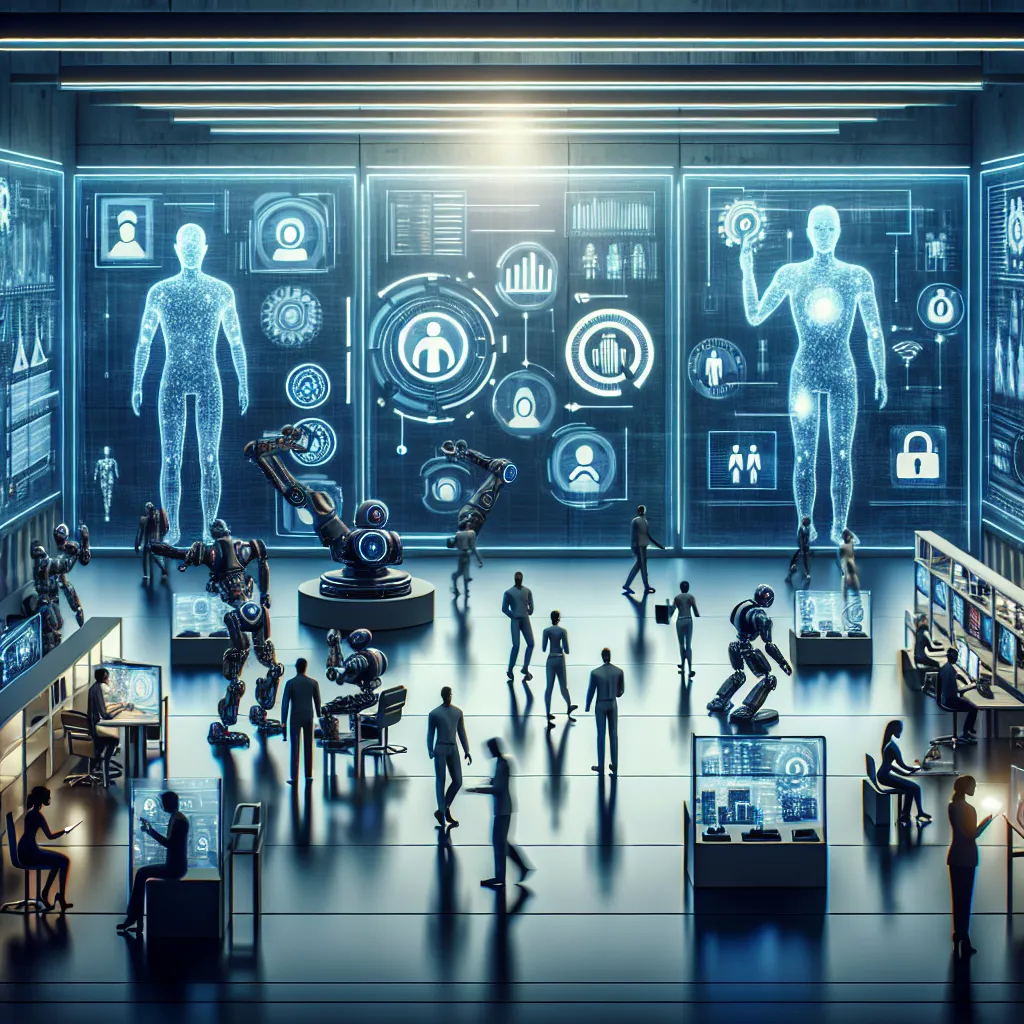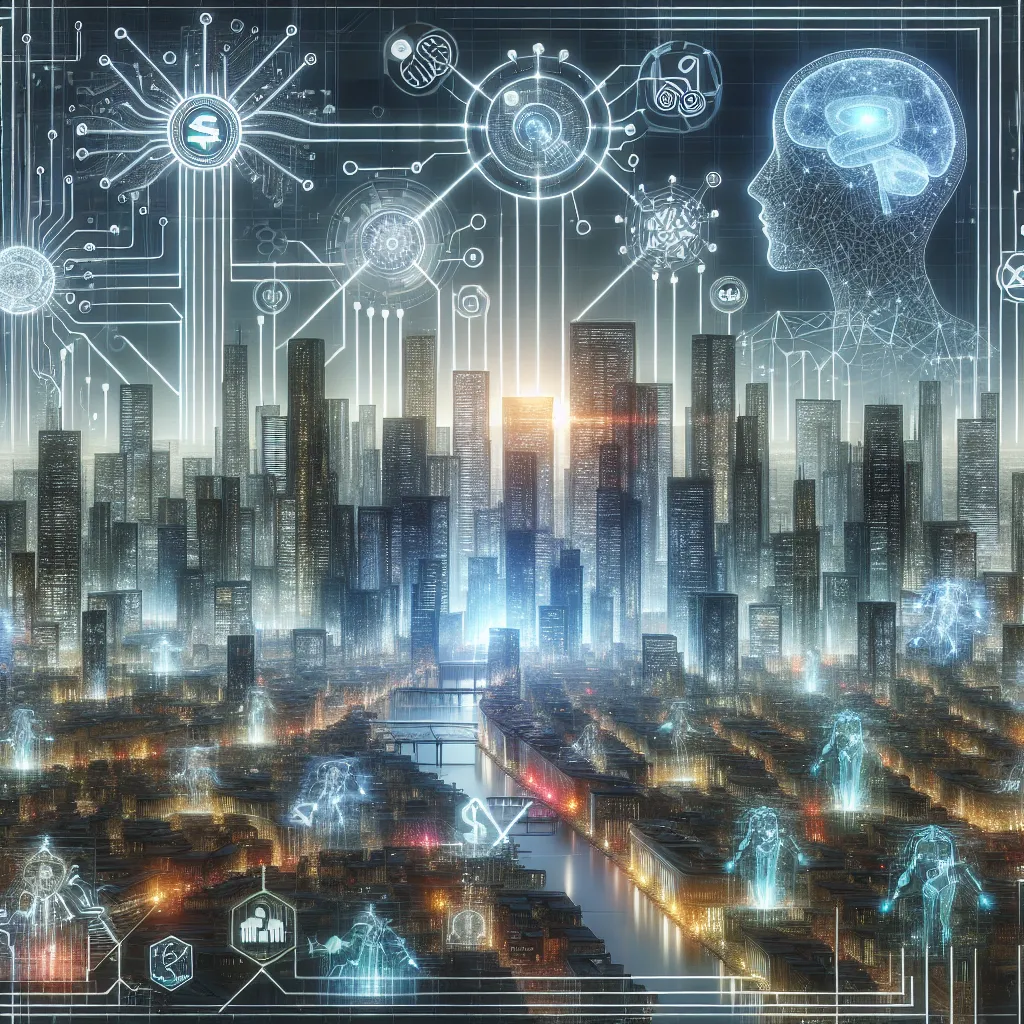The topic of automation’s impact on job creation is increasingly relevant in today’s rapidly evolving technological landscape. This subject has appeared in various forms in IELTS Writing Task 2 questions and is likely to continue being a popular theme in future exams. Let’s explore this topic through sample questions, essays, and in-depth analysis to help you prepare for your IELTS Writing Task 2.
Nội dung bài viết
Analyzing the Topic and Potential Questions
The impact of automation on job creation is a complex and multifaceted issue. IELTS examiners often frame questions around this topic to test candidates’ ability to discuss both the positive and negative aspects of technological advancement in the workplace. Based on past exam trends and current socio-economic discussions, here are some potential question types you might encounter:
- Discuss the advantages and disadvantages of automation in the job market.
- To what extent do you agree that automation will lead to more job losses than job creation?
- Some people believe that governments should regulate the use of automation to protect jobs. Do you agree or disagree?
For this article, we’ll focus on the second question type, as it requires a nuanced approach and allows for a comprehensive discussion of the topic.
Sample Question and Analysis
Let’s examine the following question:
Some people argue that automation will lead to more job losses than job creation in the future. To what extent do you agree or disagree with this statement?
Analyzing the Question
This question requires you to:
- Take a clear stance on whether you agree or disagree with the statement.
- Discuss both job losses and job creation as a result of automation.
- Support your arguments with relevant examples and explanations.
- Consider the future implications of automation on employment.
Sample Essays
Band 8-9 Essay
The rapid advancement of automation technologies has sparked a heated debate about their impact on future employment. While some argue that automation will result in more job losses than creation, I partially disagree with this statement. I believe that although certain jobs will indeed be displaced, automation will also generate new employment opportunities and transform existing roles.
Undoubtedly, automation will lead to job losses in various sectors, particularly those involving repetitive tasks. For instance, manufacturing industries have already witnessed a significant reduction in human workers as robots take over assembly lines. Similarly, self-checkout systems in retail stores and automated customer service chatbots are gradually replacing cashiers and call center operators. These changes can cause short-term unemployment and economic hardship for affected workers.
However, I contend that automation will simultaneously create new job opportunities in emerging fields. The development, maintenance, and supervision of automated systems require skilled professionals such as software engineers, data analysts, and robotics specialists. Moreover, as automation frees up human resources from routine tasks, there is likely to be an increased demand for roles that require uniquely human qualities like creativity, emotional intelligence, and complex problem-solving. For example, the growth of e-commerce has led to a surge in demand for content creators, user experience designers, and digital marketers.
Furthermore, automation can transform existing jobs rather than eliminating them entirely. Many professions will evolve to incorporate new technologies, leading to hybrid roles that combine human expertise with machine efficiency. For instance, in healthcare, while AI may assist in diagnosing diseases, doctors will still be essential for interpreting results, providing empathetic care, and making complex medical decisions. This symbiosis between humans and machines can potentially enhance productivity and job satisfaction.
In conclusion, while automation will undoubtedly displace some jobs, I believe its overall impact on employment will be more nuanced than simply causing net job losses. The key to navigating this transition lies in proactive measures such as continuous learning, skills adaptation, and policy frameworks that support workforce retraining. By embracing the potential of automation while addressing its challenges, societies can work towards a future where technological progress and human employment coexist harmoniously.
(Word count: 345)
Band 6-7 Essay
The question of whether automation will cause more job losses than job creation in the future is a complex one. While I agree that some jobs will be lost due to automation, I also believe that new jobs will be created. Therefore, I partially agree with the statement.
On one hand, it is true that automation will lead to job losses in certain areas. For example, in factories, robots are already replacing human workers on assembly lines. This trend is likely to continue and spread to other industries. Also, self-driving cars might replace taxi and truck drivers in the future. These job losses can cause problems for workers who lose their jobs and may struggle to find new employment.
However, I think automation will also create new jobs. As machines become more complex, we will need more people to design, build, and maintain them. This could lead to more jobs in fields like engineering and computer programming. Additionally, as some tasks become automated, humans may have more time to focus on jobs that require creativity and emotional intelligence, which machines cannot easily replicate.
Moreover, history has shown that technological advancements often lead to new types of jobs that we couldn’t imagine before. For instance, the internet created many new job opportunities that didn’t exist previously, such as social media managers and online content creators. It’s possible that automation will similarly lead to new job categories we can’t predict yet.
In conclusion, while automation will certainly cause some job losses, I believe it will also create new opportunities. The key is for people to be prepared to adapt and learn new skills. Governments and educational institutions should focus on training people for the jobs of the future, ensuring that the workforce can evolve alongside technological advancements.
(Word count: 282)
 Automation and Job Creation
Automation and Job Creation
Writing Tips for This Topic
Vocabulary
When writing about the impact of automation on job creation, it’s crucial to use a range of relevant vocabulary. Here are some key terms to incorporate:
- Automation (noun) /ˌɔːtəˈmeɪʃn/ – The use of machines or computers to do work that was previously done by people.
- Displacement (noun) /dɪsˈpleɪsmənt/ – The act of forcing something out of its usual or original position, in this context, referring to job losses.
- Artificial Intelligence (AI) (noun) /ˌɑːtɪfɪʃl ɪnˈtelɪdʒəns/ – The development of computer systems able to perform tasks that normally require human intelligence.
- Workforce (noun) /ˈwɜːkfɔːs/ – The total number of people who are available to work.
- Adaptability (noun) /əˌdæptəˈbɪləti/ – The quality of being able to adjust to new conditions or changes.
- Upskilling (noun) /ˈʌpskɪlɪŋ/ – The process of learning new skills or teaching workers new skills.
- Technological disruption (noun phrase) /ˌteknəˈlɒdʒɪkl dɪsˈrʌpʃn/ – A transformation that results from emerging technologies.
- Job market (noun) /dʒɒb ˈmɑːkɪt/ – The availability of employment and labor.
- Innovation (noun) /ˌɪnəˈveɪʃn/ – The introduction of new ideas, methods, or devices.
- Obsolescence (noun) /ˌɒbsəˈlesns/ – The process of becoming outdated or no longer used.
Grammar Tips
-
Use conditional sentences to discuss potential future scenarios:
- Band 8-9: “If automation continues to advance at its current pace, it could lead to significant changes in the job market.”
- Band 6-7: “If more jobs become automated, some people might lose their jobs.”
-
Employ complex sentence structures with linking words to show relationships between ideas:
- Band 8-9: “While automation may displace certain jobs, it simultaneously creates opportunities in emerging fields, thereby reshaping rather than diminishing the job market.”
- Band 6-7: “Although automation might cause some job losses, it can also create new jobs in different areas.”
-
Use passive voice when appropriate to focus on the action rather than the doer:
- Band 8-9: “Many routine tasks are being increasingly automated across various industries.”
- Band 6-7: “Some jobs are being replaced by machines.”
-
Incorporate a variety of tenses to discuss past trends, current situations, and future possibilities:
- Band 8-9: “Historically, technological advancements have led to economic shifts. Currently, we are witnessing the rapid integration of AI in various sectors, which will likely transform the nature of work in the coming decades.”
- Band 6-7: “In the past, new technologies created new jobs. Now, automation is changing many industries, and it will probably continue to affect jobs in the future.”
Conclusion
The impact of automation on job creation is a nuanced topic that requires careful consideration of both potential job losses and new opportunities. As you prepare for your IELTS Writing Task 2 exam, practice analyzing this issue from multiple perspectives and support your arguments with relevant examples.
To further enhance your writing skills, consider practicing with these related topics:
- The role of education in preparing the workforce for an automated future.
- The ethical implications of replacing human workers with machines.
- Government policies to manage the transition to an automated economy.
Remember to focus on clear argumentation, relevant examples, and a balanced discussion of the topic. Feel free to share your practice essays in the comments section below for feedback and discussion with fellow IELTS candidates. Good luck with your IELTS preparation!


